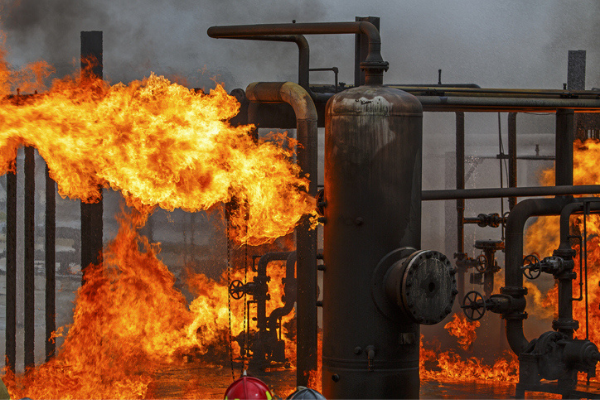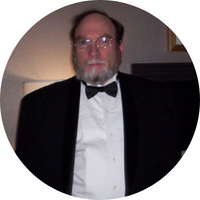
When did you decide a laboratory career wasn’t what you most wanted?
Decisions on continuing a laboratory career are often beyond our control. In my situation, there was a fire at the plant where I had been working in December 1998. I was Research Staff Member II (de facto Chief Scientist) at this plant. My counterpart in engineering and I spent about three (3) months performing our investigation. Our final report had multiple recommendations for what needed to be done to re-start production.
In what I now refer to as "political science", ALL of our recommendations were turned down. As someone who has been engaged in "science science" for ca. forty (40) years, I immediately recognized that by NOT making the necessary repairs, our plant could NOT resume normal operations.
Several people reporting to me indicated, when I told them the plant would soon shut down (ultimately in June 2001), that there is a need for such high-quality investigative work -- the most interesting research that I have done since I completed my Ph.D. more than a decade earlier. Early retirement was granted in September 2000.
Did you make a proactive decision to pursue a career outside the lab, or did an opportunity present itself?
In the interim period between the fire and my exit, I built a client list. The normal workflow in a no longer actively operating plant had ceased, so I was able to do private investigative and expert work at times when I was "off the clock."
When I decided to engage in independent consulting, it was a deliberate decision NOT to pursue employment elsewhere. I quickly learned two (2) important facts of life in "the independent world": the boss could no longer be blamed for whatever happened (went wrong) and that I could choose the sixty (60) hours worked each week.
What were your priorities as you assessed the various non-traditional career opportunities available to you?
I had been well-advised on the accounting and legal fronts in the interim period between the fire and my separation, so I was able to hit the ground running in October 2000. This is critically important for anyone engaging in an independent enterprise -- be sure that what you are planning to do does NOT create unnecessary problems. Basically, prenatal care in order to bear a healthy baby -- your independent business enterprise.
Was this a rational, logical decision, or did your gut just tell you this was the right answer?
An additional motivation occurred in the Fall of 1997. One (1) of the men working under my direction had been doing exceptional research. I went over the math (validating what he had found), so I reported to my supervisor that I would like to present these findings in a poster session at the upcoming ACS Meeting in San Francisco. The postcard was sent in and several weeks later the postcard was returned (in the days prior to ubiquitous electronic communication) indicating that this work had been accepted for presentation.
My supervisor had a change of heart. He told me that he would NOT allow me to go to San Francisco on company time. Being the personality type that I am, I told this gent that I'll take several vacation days to do this professionally important activity.
In addition to booking airfare and hotel (since I was on my own), I made an appointment to be aptitude tested at the Johnson O'Connor Research Foundation office in San Francisco. Many years earlier, Johnson O'Connor handled some of the employment hiring at General Electric. He came up with methods that would ideally match a new hire with the right position at GE.
On three (3) afternoons, I left the convention hall early to perform activities as diverse as: assembling blocks, cutting out paper dolls, doing math calculations, listening to music, putting headless pins into a cribbage board, spelling obscure words, etc. When I completed the third afternoon of activities, the local office manager called me in. He asked me what I was presently doing. I told him that I ran the laboratory at our plant. His response was (and this comment has stayed with me), "Why aren't you running the place?"
This singular event was the basis for "becoming the boss." A quarter of a century later, this remains one of the seminal events in my professional career. As I later told the plant manager (who would have let me go to San Francisco on company time), my supervisor did me a huge favor -- even if none of us knew it at the time.
In what ways, either directly or indirectly, does your non-traditional career make use of your previous scientific training?
Our consulting business has continued to grow and diversify. The net effect is just about everything that I learned in my (academic and industrial) training is applied in the work that we presently do.
I have also been blessed to have been named a distinguished alumnus at both of my universities. In pre-pandemic times, I returned to these campuses often "to give forward." At one of my presentations, a current student came up to me afterward and he exclaimed (in paraphrase), "Now I know why I needed to learn about this stuff."
When I look back after over forty (40) years in our profession, what I realize is the greatest gift that the university can provide to its graduates is "a toolbox."
This toolbox contains the fundamental information that a professional will need to succeed. At my graduate school ceremony -- when I was designated a distinguished alumnus -- I'll never forget what my (still living) mentor said in his introduction. "After all of these years, David is still solving problems."
Ten (10) words that succinctly summarize what it is all about.
Looking back, how would you assess the performance of your university in making you aware of non-traditional career opportunities? What might it do differently?
The advances in science (generally) and chemistry (specifically) are now so rapid, I don't think that it is wise to say, "I'm going here because of such and such."
If your non-traditional career choice would have been known to you as a junior in high school, would it have impacted your choice of where to attend college? Pursue an advanced degree?
Stated slightly differently, when I attended a forensic chemistry/science conference, the chair had many excellent professors on the dais with him. A student who had grown up in the CSI era asked, "So when can I start working with the expensive equipment and testifying in court?" This professor scanned the audience and when he saw me, he said, "I'll have Dr. Manuta answer this question."
I told the young man to learn AS MUCH AS HE CAN from our colleagues on the dais. All of the other concerns noted will take care of themselves as you grow as a professional.
What is the most gratifying aspect of this career?
The most gratifying aspect of my career remains helping others. Early in my career, I was the lead expert for the Defense in a murder case. When announcing the verdict, the jury foreman exclaimed, "We, the jury, find the Defendant NOT GUILTY." This is as good as it gets in my life.
This case was resolved right around Easter/Passover. Our Team was able to provide for the now-former Defendant a new beginning in his life. And it was the application of fundamental science that made this outcome possible.
Likewise, in a contemporaneous investigation, I was able to determine that the composition in a gas mixture had to be within very narrow specifications. I described this relevant information during a site visit to the manufacturing facility in Florida.
This modification in the composition of a gas mixture enabled the onboard electronics to be cold enough to work as designed. Nearly twenty (20) years later, this modification has contributed to enabling the Ukrainians to damage Russian tanks with THE JAVELIN MISSILE.
These two (2) vignettes are described in a letter to the editor of C&E News. Please see the attached document -- CEN022105.doc
What advice do you have for someone interested in moving into this field?
We need more and more young men and women of EVERY demographic group to know that they can succeed in this space. There is plenty of such challenging work to go around.
What is the most important thing to share with someone who’s thinking about making a career pathway change?
The first thing to tell someone contemplating a career change is NOT to quit your day job. Many new businesses fail since the Client base materialized too slowly. It takes time to produce the income necessary to cover expenses. The bills continue to come in without regard to your revenue streams. Having possibly two (2) years of cash on hand will keep the lights ON, while your independent enterprise is establishing itself in the panorama of small chemical businesses.
Widening the lens a bit, would you expect opportunities in non-traditional chemistry careers to expand, contract, or maintain in the future? What leads you to think that way?
Independent consulting opportunities will continue to grow post-pandemic. Many of these opportunities will be overseas. I have a client in India who refers to me as Uncle David. He has the facility, the financing, and the workforce in place. When he is in touch with me, it is to request "the know-how" needed to be successful in his current situation.
Firms in many mature American industries have been downsized. "The know-how" necessary may no longer be indigenous to the firm. Consulting opportunities at firms to "fill in the blank" for getting a process properly working, are going to continue to be plentiful. As manufacturing returns to these shores, we need talented young men and women in all demographic groups to know that YOU ARE NEEDED/WANTED.
I am optimistic that after nearly 250 years, the USA is still the best place to build and cultivate a successful business. As the baton is passed to the next generation, I am confident that what these young men and women in all demographic groups conceive of will continue our historic legacy/trajectory.

Dr. David M. Manuta, Ph.D., FAIC (Fellow, The American Institute of Chemists) founded Manuta Chemical Consulting, Inc. (MC2) in 1997. MC2 performs expert witnessing/litigation support, explosion/fire investigations, industrial troubleshooting for a variety of clients, and occupational toxicological exposure investigations in the federal nuclear weapons complex.
He obtained his B.S. in chemistry from the State University of New York (SUNY) College at Oneonta (SUCO) and his Ph.D. in Inorganic Chemistry from SUNY at Binghamton. Dr. Manuta has been named a distinguished alumnus at both universities.
The vision statement -- “To solve problems that aren't in any book” -- has guided MC2 in the hundreds of investigations and legal cases performed over the years. Applying fundamental chemistry to help others remains the reason for the existence of MC2.
The opinions expressed in this article are the author's own and do not necessarily reflect the view of their employer or the American Chemical Society.





